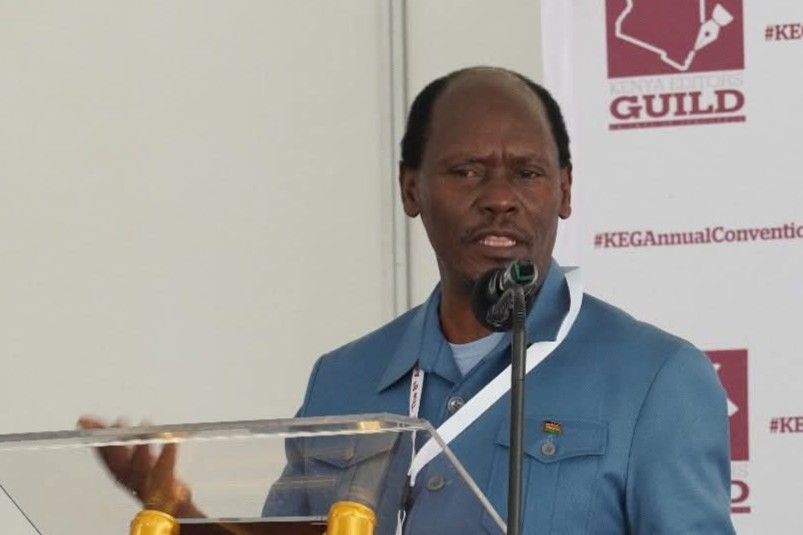

The Court of Appeal has dismissed a bid by East African Cables PLC to stop Equity Bank (Kenya) Limited from selling four of its properties over a debt of more than Sh2.2 billion, clearing the way for the lender to proceed with the auction.
In a ruling delivered on May 23, 2025, a three-judge bench comprising Justices Jamila Mohammed, F Tuiyott, and Pauline Nyamweya found that while East African Cables had raised an arguable appeal, it had failed to prove that the appeal would be rendered nugatory if the Bank were allowed to sell the charged properties.
The decision stemmed from an application in which East African Cables had asked the court to issue an order restraining Equity Bank from advertising for sale, selling, transferring or otherwise interfering with the company’s properties located in Nairobi.
The appeal followed a ruling by the High Court on November 11, 2024, in which Justice Josephine Mong’are dismissed the company’s request for an injunction against the Bank.
East African Cables argued that the Bank had issued three statutory notices dated July 3, 2023, over the same debt, demanding full repayment.
The company maintained that it was working toward settling the amount and challenged the legality of the Bank’s move to sell its assets.
In its application dated November 27, 2024, the company sought to stop the Bank’s move pending the outcome of its intended appeal.
In a supporting affidavit, the company’s Managing Director, Paul Muigai, stated that the appeal raised weighty issues and had a high chance of success.
Muigai also warned that if the Court failed to grant an injunction, the Bank would go ahead and sell the properties, thereby rendering the appeal worthless.
“The appeal will be rendered nugatory as the Bank, its servants and/or agents will advertise for sale, sell, enter into, access, alienate, transfer, interfere and/or in some other manner alter or deal with the suit properties,” he argued.
However, Equity Bank opposed the application and asked the Court to dismiss it.
In its response, the Bank argued that East African Cables had acknowledged the debt and had even been attempting to settle the outstanding amount, which stood at Sh2,201,395,011.92 as of December 5, 2024.
In an affidavit sworn by Kariuki King’ori, the Bank’s Manager of Legal Services, the lender further stated that the appeal was not arguable and insisted that should East African Cables succeed in its appeal, the only appropriate remedy would be compensation.
The Bank added that it is a tier 1 lender and fully capable of compensating the company should the appeal succeed.
Tier 1 lenders offer a wide range of financial products, from standard home loans to complex commercial finances.
After hearing submissions from both parties, the Court ruled that the application did not meet the threshold required under Rule 5(2)(b) of the Court of Appeal Rules, which governs applications for stay and injunctions pending appeal.
To succeed, an applicant must prove two things: that the appeal is arguable and that it will be rendered nugatory if the injunction is not granted.
The Court agreed that East African Cables had raised a valid issue regarding the existence of earlier interim orders in a related case, in which the company had sued Equity Bank, George Weru, and Muniu Thoiti.
The company had claimed that the interim orders in that case were still in force and protected the same properties.
But Justice Mong’are had found that those orders did not specifically mention or preserve the properties in question.
The Court of Appeal noted that this point was significant and merited further judicial scrutiny.
“Whether or not there is an interplay between this dispute and Milimani HCOMM No. E277 of 2023 … and whether the orders issued therein are binding on the Bank in respect to the exercise of the statutory power of sale is one that deserves further interrogation,” the judges ruled.
“Even on just that one issue, the appeal is arguable.”
However, on the second requirement, whether the appeal would be rendered nugatory, the Court ruled firmly against the company.
The judges noted that the properties in question were legally charged to the Bank and the company had not discharged those charges.
“The worst that can happen to the applicant (EA Cables) is for those properties to be sold and it to be found, eventually, that the exercise of the statutory power of sale was improper,” the Court observed.
Yet, such a sale would not make the appeal worthless because the law provides a remedy in damages.
“A person prejudiced by an unauthorised, improper or irregular exercise of the power of sale shall have a remedy in damages,” the Court cited from Section 99(4) of the Land Act.
The judges stressed that this is the only relief available in such cases.
“It must be in the contemplation of a chargor that the chargee could exercise the power of sale in an unauthorised, improper or irregular manner, but the only remedy available for such infraction is a relief in damages,” the Court said.
The ability of the Bank to pay such damages was not in doubt, the Court concluded, and there was therefore no reason to prevent it from exercising its statutory power of sale.
“Ultimately, we find that the notice of motion dated November 27, 2024 is without merit and hereby dismiss it with costs. The interim orders granted earlier are hereby discharged,” the bench ruled.






![[PHOTOS] Ruto present as NIS boss Noordin Haji's son weds](/_next/image?url=https%3A%2F%2Fcdn.radioafrica.digital%2Fimage%2F2025%2F11%2Ff8833a6a-7b6b-4e15-b378-8624f16917f0.jpg&w=3840&q=100)











